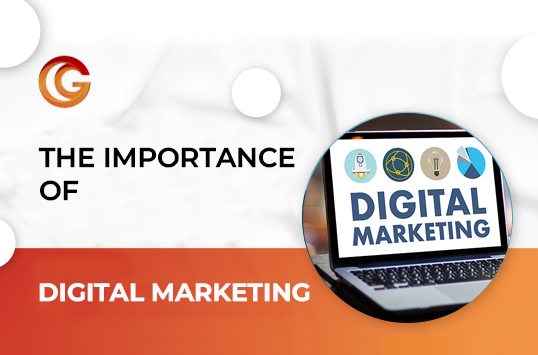To be successful in the digital modern world, it is essential that business owners make use of digital marketing. The value of digital marketing to small businesses cannot be emphasized enough, since it provides them with the ability to attract a larger audience, connect with their clients better and have measurable results among others. This blog post will discuss some of the advantages that come with digital marketing for small businesses, such as reaching out to more people at once; being cost-effective when compared to traditional forms of advertisement; fostering higher levels of customer satisfaction through constant communication as well as giving numbers which can be measured against each other to know what works best.
Additionally, we’ll provide actionable tips to help small businesses get started with their digital Marketing efforts.
Wider Audience Reach
One of the key aspects of the importance of digital marketing is its ability to help small businesses reach a broader audience. Unlike traditional marketing methods that are often limited by geography and cost, digital marketing allows businesses to connect with potential customers across the world. Through channels such as social media, search engines, and email marketing, small businesses can target specific demographics, interests, and behaviors, ensuring their message reaches the right people. This extensive reach can lead to increased brand awareness and customer acquisition.
Cost-Effective Marketing
The importance of digital marketing is also evident in its cost-effectiveness. Small businesses typically have limited marketing budgets, and digital marketing offers a more affordable alternative to traditional advertising methods like print, television, or radio. Platforms like Google Ads, Facebook Ads, and content marketing strategies allow businesses to reach their target audience without breaking the bank. Additionally, many digital marketing tools and resources are available for free or at a low cost, making it easier for small businesses to implement and manage their campaigns.
Enhanced Customer Engagement
Digital marketing facilitates better customer engagement, another significant factor highlighting the importance of digital marketing. Social media platforms, email marketing, and websites enable businesses to interact with their customers in real-time, fostering stronger relationships and building customer loyalty. Through personalized content, responding to customer inquiries, and engaging in conversations, small businesses can create a more personalized experience for their customers, leading to higher satisfaction and retention rates.
Measurable Results
Another critical aspect of the importance of digital marketing is the ability to measure results accurately. Unlike traditional marketing methods, digital marketing provides detailed analytics and insights into campaign performance. Businesses can track metrics such as website traffic, conversion rates, and customer engagement to understand what strategies are working and where improvements are needed. This data-driven approach allows businesses to make informed decisions, optimize their marketing efforts, and achieve better results over time.
Actionable Tips for Getting Started
Identify Your Goals
The first step in leveraging the importance of digital marketing is to identify clear and achievable goals. Whether it’s increasing brand awareness, generating leads, or driving sales, having specific objectives will guide your digital marketing strategy and help measure success.
Know Your Audience
Understanding your target audience is crucial for effective digital marketing. Conduct market research to identify your ideal customers’ demographics, preferences, and online behaviors. This knowledge will enable you to customize your marketing messages and choose the right platforms to reach them.
Optimize Your Website
A well-optimized website is essential for a successful digital marketing strategy. Ensure your website is user-friendly, mobile-responsive, and optimized for search engines (SEO). This will improve your visibility online and provide a better experience for your visitors.
Leverage Social Media
Social media is a powerful tool for small businesses to connect with their audience and promote their brand. Choose the platforms that align with your target audience and create engaging content that resonates with them. Consistent posting and interaction will help build a loyal following and drive traffic to your website.
Invest in Content Marketing
Content marketing is a cost-effective way to attract and engage your audience. Create valuable and relevant content, such as blog posts, videos, and infographics, that address your customers’ pain points and interests. This will position your business as an authority in your industry and drive organic traffic to your site.
Utilize Email Marketing
Email marketing remains one of the most effective digital marketing strategies. Build an email list of potential and existing customers and send personalized, targeted emails to nurture relationships and drive conversions. Offer valuable content, promotions, and updates to keep your audience engaged.
Monitor and Analyze Performance
Regularly monitoring and analyzing your digital marketing efforts is essential to understand what’s working and what needs improvement. Use tools like Google Analytics and social media insights to track key performance metrics and adjust your strategy accordingly. This will help you optimize your campaigns and achieve better results over time.
In conclusion, the importance of digital marketing for small businesses cannot be overstated. By implementing the strategies outlined above, small businesses can effectively reach their target audience, engage with customers, and achieve measurable success in the digital landscape.

